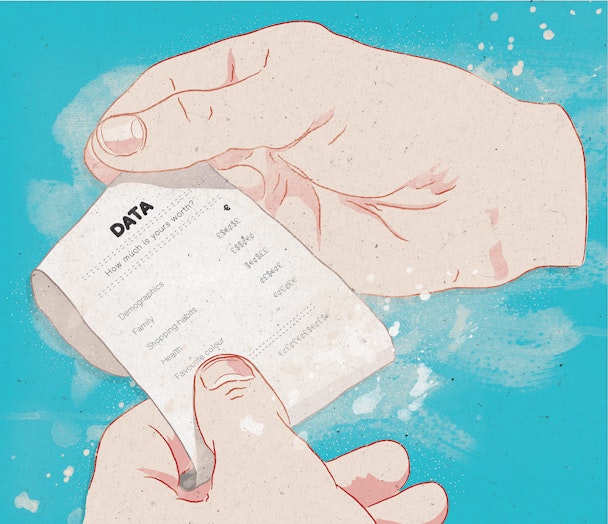Don't wait for the data – it will only mislead you
A client of mine once remarked, to pass the time during a long flight across the USA, that his company was spending a million dollars a day on ‘fixing its data’.

‘Do you think we’ll ever get that money back?’ he asked.
I wanted to be kind, and reassure him, but I could not tell a lie.
'Probably not.'
He sighed, and said, 'I thought not,' and turned to gaze out of the window at Yellowstone National Park as it passed beneath us.
I don't remember ever meeting a client who was happy with their database. Typically, the first thing you hear after winning a new client is that your strategic proposals – the ones you won the pitch with – are all very lovely, but impossible to carry out. Because if you try, smoke will start pouring out of the database, and if you persist, it will blow up.
Everything must wait, therefore, until the data is fixed. And you'll still be waiting seven years later, when the client calls a pitch because you didn't lead them to the promised land.
But the golden age of data is coming. Everyone's talking about it. It will be here soon. It's been coming soon since 1989, as far as I know, and probably long before then, too.
I was told back then by the chairman of my agency that one day, in the not too distant future, we would have no need of creative ideas to sell things, because we would have such precise data about customers that a simple letter, personalised to the nth detail, would do the trick. So deep would be our insights into their states of mind that they would all respond exactly as we wanted.
He meant this to be reassuring to me, as someone would need to write all those letters. Good news for writers, not so much for art directors.
This day has not yet dawned. Nor will it, ever. Not just because nobody would now talk about letters, but also because the data can never be that useful. It's come a long way since then, but if we wait for perfection, we'll never get anything done.
My client was right to wonder how much value his company could possibly get from its data. For one thing, more doesn't necessarily mean better. We now have huge amounts of data, but what can it tell us, and can it mislead us?
There's an amusing website that shows spurious data connections such as a close correlation between margarine consumption and divorce rates. Or between the age of Miss America and the number of murders by steam, hot vapours and hot objects.
The lesson of which is that correlation is not the same as causation. Marketing data is much more straightforward, and less exciting – no murders by hot vapours in there, normally. But you still need to be careful. Another client of mine noticed a strong correlation between buying a certain brand of cook-in chicken sauce and a particular kind of shampoo, and decided to cross-sell on that basis. It was only with great difficulty that he was talked out of it, my argument being that although he owned both brands, the customer probably kept chicken sauce and shampoo in different places in their heads. And homes. Nobody wants to think of them as related.
What made much more sense was offering the same brand conditioner to the shampoo people, and a variation of the chicken sauce to the others. Perhaps a sauce for lamb, or beef. Not nearly so exciting, but more likely to succeed.
But you wouldn’t need data mining, data warehousing, big data, data science or whatever the next macho term is going to be to do something like that. Just knowing who bought what would be enough.
Sometimes creative briefs do turn up with such simple information on them. But more likely you’ll get some highly elaborate description of your target audience, sometimes categorised by their habitat – ‘urban achievers’ – or status – ‘young influentials’ – or given a name – ‘Laura, lives with her partner, goes to the gym, etc.’
These are quite frightening, but useless. They give an impression of deep knowledge, but it’s entirely superficial. You won’t find yourself or anyone you know well in these descriptions. And even if you could, they’d still be useless, because human behaviour is not predictable like this.
We are not rational creatures, and we don’t always do what’s good for us, or what’s consistent with our personalities. The person I know best in all the world has just got back from the shops with nothing but a hand-carved wooden figure of a Swedish Lutheran priest. Data mine that.
Remember the phrase we have to stick on financial ads? ‘Past performance is no guarantee of future results’?
We should approach all data with this in mind.
Paul Kitcatt is a consultant chief creative officer
